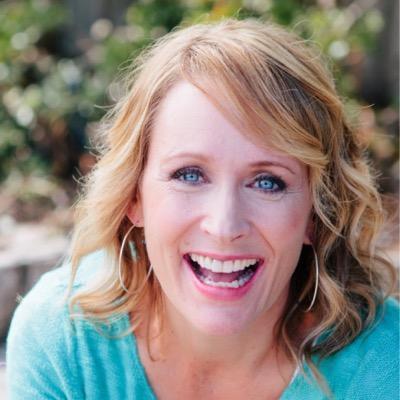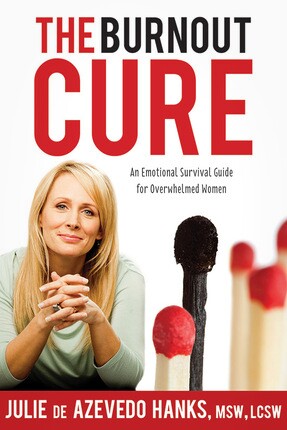This was written in conjunction with another LDS Living article by Julie de Azevedo Hanks: Is There a Mormon Burnout Epidemic?
One of our core values as Latter-day Saints is honesty (the 13th article of faith begins, “We believe in being honest,” right?). We know that it’s dishonest to lie, steal, and cheat, but have you ever considered that it might also be dishonest to say “yes” when you really mean “no”? For example, if someone asks you if you’d be willing to do something and you say yes when truthfully you are not willing to do so, you are being dishonest. It’s so tricky—we want to please, and we want to help; we want to do our share, and we want to do what’s right. I know that there have been times when I really wish I felt free to say “no” (and feel at peace about it), but I found myself saying “yes” yet again. Unsurprisingly, this pattern of repeatedly saying “yes” can cause problems in one’s emotional wellness, communication, and even in relationships. I do not intend to suggest that we stop going out of our way to serve others, or to always say “no,” but I think it’s important to examine why always saying “yes” can be harmful, and to look at why it’s okay, even honorable, to sometimes say “no.”
--> Related Reading + Poll: What to Do When You're Overwhelmed at Church
A dishonest “yes” breeds stress and resentment.
I have seen a dishonest “yes” create distance, stress, resentment, and guilt. A wise woman I met several years ago at a workshop in California told me, “My definition of stress is when your gut says ‘no’ and your mouth says, ‘Certainly!’” Perhaps it is the dishonest “yes” to too many things (even if they’re all good things) that contributes to a hectic life. When we are dishonest with ourselves, we are likely to end up harboring feelings of resentment toward others, which can in turn make it very difficult for us to feel the Spirit. The Savior’s perfect life beautifully illustrates the clarity of purpose and priority. Elder Neal A. Maxwell said, “As far as I can see, Jesus was never hectically involved. This is all the more marvelous when we realize that so much of His mortal Messiahship was crowded into only three very busy years” (Neal A. Maxwell, “Wisdom and Order,” Ensign, June 1994, 43). I understand this quote to mean that we can follow the example of Christ by being mindful of individuals in our lives and helping to meet their needs without manically saying “yes” to every opportunity or request.
In my late teens, I started writing and recording music and doing concerts and performances. When opportunities came up that I didn’t feel like I had the time or energy to do, I had the hardest time saying “no.” I felt honored to be asked, and I didn’t want to disappoint anyone, so I would automatically think, “How can I make this work?” I’d go to great lengths to rearrange everything in my life to cram in additional commitments. After a while, I realized that trying to say yes to every event request was burning me out, especially considering that I was also a college student. At one point I realized that I was behaving as if I was the only person on earth who could do a musical number or a fireside. But the whole world didn’t revolve around me, and if I said “no,” the Youth Conference would go on and the fireside would be fine. I have had to learn to be okay with saying “no”—without guilt—when I have been inspired to say “no,” even to good things I wanted to do.
Be a good steward of your time and energy by focusing on good, better, best.
President Spencer W. Kimball taught that “we are stewards over our bodies, minds, families, and properties.” Deciding where we invest our time and energy is part of our stewardship in life. Because of the gift of agency, we are the ones who choose what is more important to us and when, and the goal is to have the Spirit to help us make decisions that are “pleasing unto God” (Jacob 2:7).
Imagine that you are at a buffet, and your goal is to eat healthy. You begin to fill your plate with fruits, vegetables, and other nutritious choices (all while carefully steering clear of the infamous dessert tray). But as you keep piling food, even healthy food, on your plate, what happens? It is quickly filled and food starts falling off. In my experience, the things that usually fall off first when I’m overcommitted are the most important ones: personal scripture study, meaningful prayer, family home evening, patience with my family, etc. When these crucial gospel habits are inconsistent or absent in my life, it often has a negative impact on me and my family.
I’m reminded of Elder Dallin H. Oaks’s landmark talk “Good, Better, Best,” in which he explains that, “the number of good things we can do far exceeds the time available to accomplish them. As we consider various choices, we should remember that it not enough that something is good. Other choices are better, and still others are best... [T]hese are the things that should command priority attention in our lives.”
Here are 5 reasons that saying an inspired “no” is not only a wise use of your stewardship, but is also important for your own emotional well-being
1. “No” Sets an Important Boundary
“No” shows that while you belong to your family, neighborhood, community, and the Church, you are an individual person with your own thoughts, feelings, and needs. Saying “no” to certain things acknowledges that you are unique and that your voice does matter. Learning to say “no” is a critical part of self-development, especially for those of us who tend to take on too many commitments and responsibilities. It also helps us be more sincere and genuine when we say “yes.”
2. “No” Means Acceptance of Your Limitations
Many of us seem to try to live as though we are omnipotent, omniscient, and omnipresent in this life; we think we can and must be everything to everyone. But creating this expectation is exhausting and unrealistic; you are a human being with human limits! Saying “no” is a way of acknowledging that you have mortal limitations. It allows you to prioritize your life based on what is most important to attend to right now.
3. “No” Prevents Burnout
Saying “no” and setting limits allows you to avoid feeling overwhelmed and becoming overcommitted. Saying “no” with honesty and confidence can free you from guilt and resentment. You have to pick and choose where to invest your time, energy, and other resources as part of using your agency. Through thoughtful prayer and study of the gospel, you can be inspired to make the best choices. One participant in a workshop I once conducted commented, “When I say ‘no,’ I’m saying ‘yes’ to something more important.”
4. “No” Helps You Identify Your Needs
If you are someone who struggles to know what you want for yourself, you can use “no” to help identify your needs more clearly. Often, I help clients figure out what they want to do by eliminating the “definitely nots” from their options. I once worked with a woman who had a desire to expand her talent and passion for cooking and entertaining into a paying job, but was paralyzed by not knowing exactly what she wanted to do. I encouraged her to pick one option to focus on, but to also give herself permission to change her mind at any time by saying, “No, this isn’t what I want to do after all,” and then try something else. This process of elimination helped her hone in on what she most wanted and identify what she needed to do next.
5. “No” is an expression of having a self.
It is vitally important for your psychological and spiritual well-being to realize that you are you. Being able to think for yourself and express your desires is part of the Lord’s plan. In a recent conversation with my mother, she shared her struggle to respond to an invitation. She expressed how she felt that she should attend the event, but wasn’t looking forward to it. As she was going back and forth trying to decide whether to accept the invitation, I asked her, “Do you want to go? It’s OK to do what you want to do.” She paused for a moment and said, “I have never given myself permission to make a decision simply on whether I want to do something or not.” I replied, “It really simplifies things, doesn’t it.”
I encourage you to thoughtfully consider your own feelings, needs, limitations, and desires. What things warrant your time and attention? What things would you do well to say “no” to? How can you be a “wise steward” (Doctrine & Covenants 78:22) of your time, energy, talents, and gifts? Seek inspiration as you carefully consider how and where to expend your physical, spiritual, and emotional energy, and in doing so, reclaim you’re right to say “no.”
Adapted from the book The Burnout Cure: An Emotional Survival Guide for Overwhelmed Women. This book dispels common cultural myths that often leave women feeling “never good enough.” Through scriptural quotes, personal stories, and clinical examples, Dr. Hanks offers a bevy of tools designed to help sisters identify and meet their emotional needs, to accept their limitations, to let go of the guilt and perfectionism, and to lean on the Lord.
Julie de Azevedo Hanks, PhD, LCSW is the owner/director of Wasatch Family Therapy, a popular blogger, an online mental health influencer, a local and national media contributor. Dr. Hanks’ first book The Burnout Cure: An Emotional Survival Guide for Overwhelmed Women addresses common LDS cultural myths that leave women feeling “never good enough.” Julie and her husband are the parents of four children. Visit DrJulieHanks.com for more great tips on facing life's challenges, or get your invitation to join Dr. Hanks’ NEW Burnout Cure E-Course at drjuliehanks.com/ecourses.



